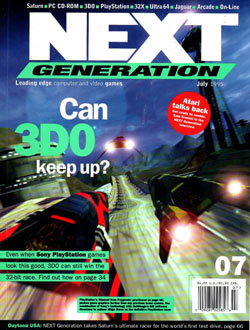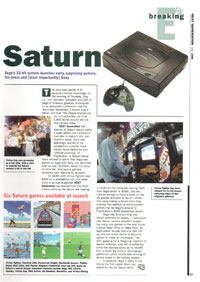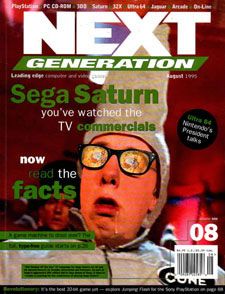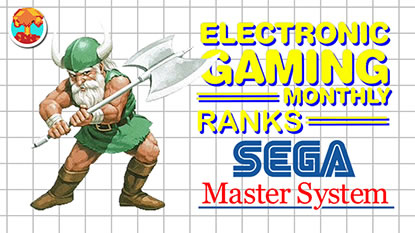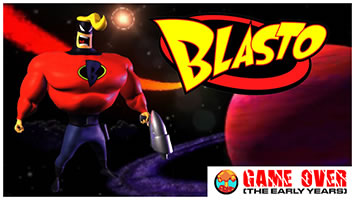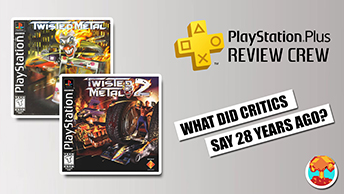- CLASSIC MAGAZINES
- REVIEW CREW
A show recapping what critics thought back
when classic games first came out! - NEXT GENERATION'S BEST & WORST
From the worst 1-star reviews to the best
5-stars can offer, this is Next Generation! - NINTENDO POWER (ARCHIVE)
Experience a variety of shows looking at the
often baffling history of Nintendo Power! - MAGAZINE RETROSPECTIVE
We're looking at the absolutely true history of
some of the most iconic game magazines ever! - SUPER PLAY'S TOP 600
The longest and most ambitious Super NES
countdown on the internet! - THEY SAID WHAT?
Debunking predictions and gossip found
in classic video game magazines! - NEXT GENERATION UNCOVERED
Cyril is back in this spin-off series, featuring the
cover critic review the art of Next Generation! - HARDCORE GAMER MAGAZING (PDF ISSUES)
Download all 36 issues of Hardcore Gamer
Magazine and relive the fun in PDF form!
- REVIEW CREW
- ELECTRONIC GAMING MONTHLY
- ELECTRONIC GAMING MONTHLY RANKS
From Mario to Sonic to Street Fighter, EGM
ranks classic game franchises and consoles! - ELECTRONIC GAMING MONTHLY BEST & WORST
Counting down EGM’s best and worst reviews
going year by year, from 1989 – 2009! - ELECTRONIC GAMING BEST & WORST AWARDS
11-part video series chronicling the ups and
downs of EGM’s Best & Worst Awards!
- ELECTRONIC GAMING MONTHLY RANKS
- GAME HISTORY
- GAME OVER: STORY BREAKDOWNS
Long-running series breaking down game
stories and analyzing their endings! - A BRIEF HISTORY OF GAMING w/ [NAME HERE]
Real history presented in a fun and pithy
format from a variety of game historians! - THE BLACK SHEEP
A series looking back at the black sheep
entries in popular game franchises! - INSTANT EXPERT
Everything you could possibly want to know
about a wide variety of gaming topics! - FREEZE FRAME
When something familiar happens in the games
industry, we're there to take a picture! - I'VE GOT YOUR NUMBER
Learn real video game history through a series
of number-themed episodes, starting at zero! - GREAT MOMENTS IN BAD ACTING
A joyous celebration of some of gaming's
absolute worst voice acting!
- GAME OVER: STORY BREAKDOWNS
- POPULAR SHOWS
- DG NEWS w/ LORNE RISELEY
Newsman Lorne Riseley hosts a regular
series looking at the hottest gaming news! - REVIEW REWIND
Cyril replays a game he reviewed 10+ years
ago to see if he got it right or wrong! - ON-RUNNING FEUDS
Defunct Games' longest-running show, with
editorials, observations and other fun oddities! - DEFUNCT GAMES QUIZ (ARCHIVE)
From online quizzes to game shows, we're
putting your video game knowledge to the test!- QUIZ: ONLINE PASS
Take a weekly quiz to see how well you know
the news and current gaming events! - QUIZ: KNOW THE GAME
One-on-one quiz show where contestants
find out if they actually know classic games! - QUIZ: THE LEADERBOARD
Can you guess the game based on the classic
review? Find out with The Leaderboard!
- QUIZ: ONLINE PASS
- DEFUNCT GAMES VS.
Cyril and the Defunct Games staff isn't afraid
to choose their favorite games and more! - CYRIL READS WORLDS OF POWER
Defunct Games recreates classic game
novelizations through the audio book format!
- DG NEWS w/ LORNE RISELEY
- COMEDY
- GAME EXPECTANCY
How long will your favorite hero live? We crunch
the numbers in this series about dying! - VIDEO GAME ADVICE
Famous game characters answer real personal
advice questions with a humorous slant! - FAKE GAMES: GUERILLA SCRAPBOOK
A long-running series about fake games and
the people who love them (covers included)! - WORST GAME EVER
A contest that attempts to create the worst
video game ever made, complete with covers! - LEVEL 1 STORIES
Literature based on the first stages of some
of your favorite classic video games! - THE COVER CRITIC
One of Defunct Games' earliest shows, Cover
Critic digs up some of the worst box art ever! - COMMERCIAL BREAK
Take a trip through some of the best and
worst video game advertisements of all time! - COMIC BOOK MODS
You've never seen comics like this before.
A curious mix of rewritten video game comics!
- GAME EXPECTANCY
- SERIES ARCHIVE
- NINTENDO SWITCH ONLINE ARCHIVE
A regularly-updated list of every Nintendo
Switch Online release, plus links to review! - PLAYSTATION PLUS CLASSIC ARCHIVE
A comprehensive list of every PlayStation
Plus classic release, including links! - RETRO-BIT PUBLISHING ARCHIVE
A regularly-updated list of every Retro-Bit
game released! - REVIEW MARATHONS w/ ADAM WALLACE
Join critic Adam Wallace as he takes us on a
classic review marathon with different themes!- DEFUNCT GAMES GOLF CLUB
Adam Wallace takes to the links to slice his way
through 72 classic golf game reviews! - 007 IN PIXELS
Adam Wallace takes on the world's greatest spy
as he reviews 15 weeks of James Bond games! - A SALUTE TO VAMPIRES
Adam Wallace is sinking his teeth into a series
covering Castlevania, BloodRayne and more! - CAPCOM'S CURSE
Adam Wallace is celebrating 13 days of Halloween
with a line-up of Capcom's scariest games! - THE FALL OF SUPERMAN
Adam Wallace is a man of steel for playing
some of the absolute worst Superman games! - THE 31 GAMES OF HALLOWEEN
Adam Wallace spends every day of October afraid
as he reviews some of the scariest games ever! - 12 WEEKS OF STAR TREK
Adam Wallace boldly goes where no critic has
gone before in this Star Trek marathon!
- DEFUNCT GAMES GOLF CLUB
- DAYS OF CHRISTMAS (ARCHIVE)
Annual holiday series with themed-episodes
that date all the way back to 2001!- 2015: 30 Ridiculous Retro Rumors
- 2014: 29 Magazines of Christmas
- 2013: 29 Questionable Power-Ups of Christmas
- 2012: 34 Theme Songs of Christmas
- 2011: 32 Game Endings of Christmas
- 2010: 31 Bonus Levels of Christmas
- 2009: 30 Genres of Christmas
- 2008: 29 Controls of Christmas
- 2007: 34 Cliches of Christmas
- 2006: 33 Consoles of Christmas
- 2005: 32 Articles of Christmas
- 2004: 31 Websites of Christmas
- 2003: 29 Issues of Christmas
- 2002: 28 Years of Christmas
- 2001: 33 Days of Christmas
- NINTENDO SWITCH ONLINE ARCHIVE
- REVIEW ARCHIVE
- FULL ARCHIVE
The First E3: What Did Next Generation Think of E3 in 1995?

With only a few issues to their name, Next Generation magazine went into the first Electronic Entertainment Expo as the new kid on the block. But despite their inexperience, Neil West and his crew had already made a name for themselves with hard-hitting interviews and a focus on the big players in the industry. While other magazines were content publishing 25 pages of wall-to-wall pictures, Next Generation chose to spend their time challenging the status quo and asking real questions. This was a magazine with something to prove.
At first glance, you might not even realize that E3 had taken place. The July 1995 cover makes no mention of the industry event, instead choosing to focus on the 3DO and the impending 32-bit war. The cover also teases an exclusive interview with Atari's Sam Tramiel, as well as "the world's first test drive" of Daytona USA on Sega Saturn. E3 is nowhere to be seen.
Inside the magazine is a different story. Calling it "The Greatest Show on Earth," Next Generation devoted seven text-heavy pages to the Electronic Entertainment Expo. "It was the largest videogame show ever," the magazine begins. "Every major player on the world videogame stage met to cement deals, scout out the competition, and show off."
True to form, Next Gen chose to focus more on the technology than the games. Over six pages, the magazine assessed the pros and cons of the Sega Saturn, Sony PlayStation, 3DO, Ultra 64, Atari Jaguar and personal computers. Each page not only featured a detailed write-up about the systems, but also showed us what the booths looked like on the show floor. Here are some examples of what Next Generation thought of the console war at the time.
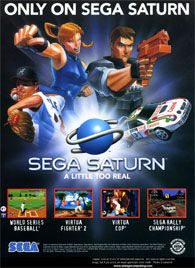
SEGA SATURN"Sega had little exciting new Saturn software on display -- and proud new Saturn owners shouldn't expect too many new games in the near future. Instead Sega relied on Sega Rally, an eight-player arcade Daytona USA link-up, and the shock factor of Saturn's launch to make an impression. The 32X, gasping for a life-giving injection of decent software, was left to suffocate while the Genesis looks set to benefit from a sharp Earthworm Jim-inspired platformer called Vector Man arriving at stores closer to the holiday season."
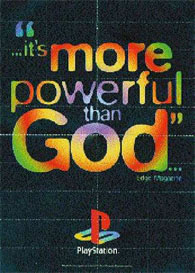
SONY PLAYSTATION"It's ironic that Sony -- the company most expected at E3 to be relying on corporate hype to mask concrete plans, and smoke and mirrors to disguise a lack of software -- was perhaps the most upfront and honest of the "big three." While Nintendo insisted that the conspicuous absence of Ultra 64 didn't detract (and almost succeeded) from its show lineup and Sega rode the wave of E3's hottest news ,SCE quietly got on with the business of rolling out its plans and showing off its games."
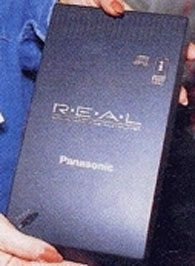
3DO/M2"But with no concrete announcement of either price or release date (not even ballpark estimates), 3DO's promises for the future have to be seen as little but a spoiling tactic to place a drag on PlayStation and Saturn sales. Ironically, the perennial "Just-wait-until-next-year" whispers would seem to have switched from being 3DO's enemy in 1994 to ally in 1995."
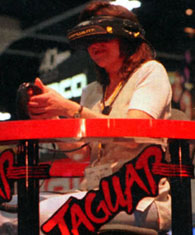
ATARI JAGUAR"Although the steady flow of conference delegates who "had a go" at an "early working demonstration" of Jaguar VR came away exceedingly impressed, NEXT Generation has learned the system being demonstrated was nothing other than Virtuality's own arcade system disguised as Jaguar VR. A wolf in sheep's clothing, indeed, and reminiscent of 3DO's early attempts to fool CES into believing that a Macintosh demo was in fact he REAL 3DO."
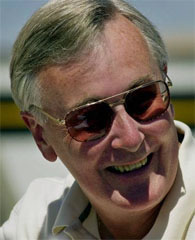
ULTRA 64"The official line? "We've decided to give our software developers additional time to maximize the power of the system in their game creation," said Nintendo of America's chairman Howard Lincoln. The real reason? No one's entirely sure. Software delays could well account for the lag, but with Killer Instinct and Cruis'n' USA presumably completed months ago, and a brace of "dream team" third party products in the pipeline, a 1995 launch should at least be possible -- if not ideal."
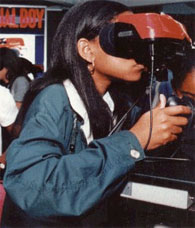
VIRTUAL BOY"Virtual Boy was there, of course, and seemed to thoroughly impress everybody who's never actually played a videogame before (everyone else was playing SNES Killer Instinct and Donkey Kong Country 2). Virtual Boy will be released on August 14, priced at $179.95. "Virtual Boy is unlike anything currently available at the home," says Nintendo's Peter Main. And we have to agree with him."
These E3 interviews were among the most contentious, featuring the biggest industry players taking their gloves off. Atari's Sam Tramiel threatened that "if Sony comes in at $299 or $249 then we'll have the International Trade Commission of the United States go after them. That's what's called dumping, and it's against the law."
One month later, Nintendo chairman Howard Lincoln defended everything from the Ultra 64's delays to choosing cartridges over CD. "I think it would have been a mistake to rush this product to market. In this business you only get one cut at it, and I think gameplayers are very conscious of the quality of software."
In that same issue, Next Generation spent seven pages breaking down the biggest news of E3 -- Sega's surprise Saturn launch. Even though the video game event only lasted three days, months later its impact was still being felt. Next Generation was the one magazine perfectly equipped to parse the many levels of what happened at the first Electronic Entertainment Expo.
HOME |
CONTACT |
NOW HIRING |
WHAT IS DEFUNCT GAMES? |
NINTENDO SWITCH ONLINE |
RETRO-BIT PUBLISHING
Retro-Bit |
Switch Planet |
The Halcyon Show |
Same Name, Different Game |
Dragnix |
Press the Buttons
Game Zone Online | Hardcore Gamer | The Dreamcast Junkyard | Video Game Blogger
Dr Strife | Games For Lunch | Mondo Cool Cast | Boxed Pixels | Sega CD Universe | Gaming Trend
Game Zone Online | Hardcore Gamer | The Dreamcast Junkyard | Video Game Blogger
Dr Strife | Games For Lunch | Mondo Cool Cast | Boxed Pixels | Sega CD Universe | Gaming Trend
Copyright © 2001-2025 Defunct Games
All rights reserved. All trademarks are properties of their respective owners.
All rights reserved. All trademarks are properties of their respective owners.







